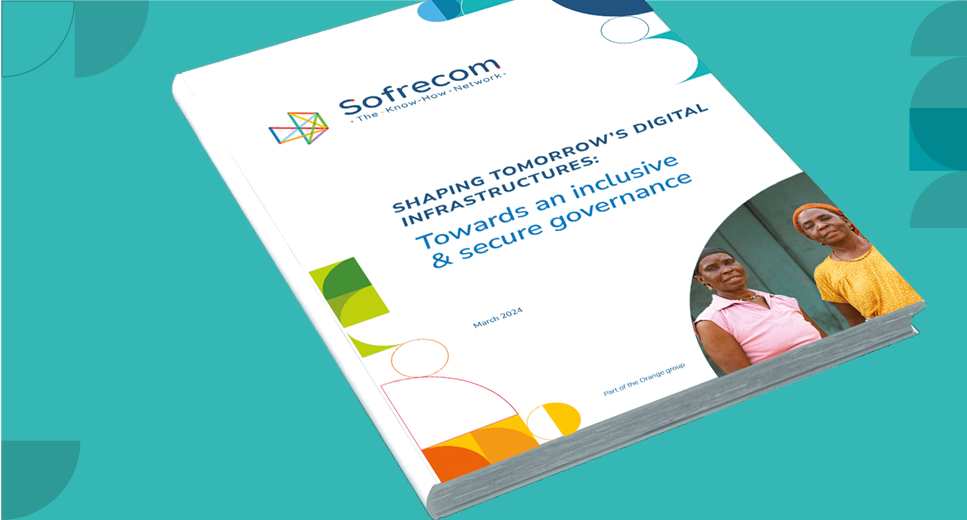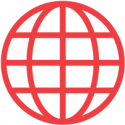Governments must show true leadership to engage all stakeholders in society in the implementation of the 2030 Agenda: local authorities, businesses, and citizens.

The 193 member states of the United Nations committed to implementing the 2030 Agenda, which they adopted in September 2015, centered around five main objectives: combating inequality and exclusion, and ending extreme poverty; addressing climate challenges; promoting sustainable production and consumption; striving for good governance; and strengthening partnerships, financing, and solidarity. However, at the midway point, numerous challenges persist.
How do governments incorporate the SDGs into their national strategic plans?
In developing countries, strategic plans integrating the SDGs receive support from the United Nations, notably from agencies such as UNDP (responsible for guiding the SDGs), as well as WHO, FAO, UNEP, UNICEF , and other UN agencies that assist in implementing action programs. Each nation has its own roadmap, often given a specific name such as the Plan for an Emerging Senegal (PES), the National Strategy for Sustainable Development and Action Plan (NSSD) in Morocco, or the Growth and Transformation Plan (GTP) in Ethiopia. France relies on its Agenda 2030 roadmap, overseen by the General Commissioner for Sustainable Development within the Ministry of Ecological Transition and Territorial Cohesion. In 2021, Spain established a Ministry of Social Rights and Agenda 2030, elevating the political and strategic significance of the SDGs with cross-cutting integration, enhanced visibility, and, consequently, strengthened commitment.
The 17 SDGs are broken down into 169 specific targets and 232 evaluation indicators, allowing for progress measurement, comparison, and collective alignment towards shared objectives. These indicators serve as a compass for sustainability, a framework, a tool for collaboration, a method for driving change, and a dashboard for monitoring progress. Each community can readily embrace around 80 to 100 indicators. Countries wishing to do so present reports on their progress to the UN in New York as part of the annual High-Level Political Forum (HLPF).
Despite the existence of these national plans, progress indicators, and global monitoring of SDG implementation, the overall assessment is alarming: it is projected that probably 80% of the SDGs will not be achieved by 2030. The SDG Index and the 2023 World Sustainable Development Report by SDSN and Bertelsmann Stiftung indicate that countries across the Northern Hemisphere face environmental challenges, while the majority worldwide grapple with issues of extreme poverty and hunger.
In September 2023, in response to these challenges, UN Secretary-General António Guterres urged a wide range of civil society groups to mobilize and «save the SDGs.»
How do countries rank in accomplishing the 17 SDGs?
The Nordic countries lead the SDG ranking: Finland, Sweden, Denmark, Germany, and Austria. In some countries, policymakers allocate budgets to the SDGs and engage communities in their implementation. Consequently, nearly 80% of the population is familiar with the SDGs, while 90% of French citizens remain unaware of them. Despite being instrumental in the adoption of the Paris Agreement shortly before the SDGs, France has yet to fully embrace the goals of the 2030 Agenda. However, the country has moved from 8th to 6th place thanks to its social and solidarity policies and gender equality initiatives, as well as its efforts in energy and innovation.
In response to the climate disasters of the summer of 2022, France has implemented initiatives such as the France Nation Verte (Ecological Plan) along with the Success Contract for Ecological Transition and France 2030. However, these efforts appear to prioritize the technical aspects of ecology rather than adopting a holistic approach to sustainable development that addresses societal concerns simultaneously. We need to balance immediate monthly priorities with long-term global challenges and, most importantly, enhance our determination to take action and innovate.
The 10 least virtuous countries, ranked from 157th to 166th in the SDG Index, are also listed with a high level of «perceived corruption» in Transparency International’s ranking: Liberia, Afghanistan, Democratic Republic of the Congo, Sudan, Niger, Somalia, Yemen, Chad, Central African Republic, and South Sudan. This once again proves that good governance and democratic development (SDG 16) are major drivers of development and well-being for all.
Ranking highlights
The SDG Index showcases several exemplary countries. In Asia, South Korea ranks 31st, Vietnam ranks 55th, Bhutan 61st, and Singapore 64th. In Africa, Tunisia holds the 58th position, and Morocco, long praised for its renewable energy efforts under King Mohammed VI’s leadership, holds the 70th position. The King remains dedicated to combating corruption and incorporating human elements into all projects, including infrastructure development across the Kingdom. Moreover, the SDG Index sheds light on the disparity between the lofty ambitions proclaimed by certain African countries to enhance their international image and the reality of implementing the SDGs.
For instance, Ivory Coast, acknowledged for its initiatives in women’s leadership, resilience (Abidjan Legacy), digital economy, and partnerships, ranks only 120th, while Niger ranks 146th (with only 6% of its budget allocated to healthcare compared to 18% for security). The African continent, which is rich in both skills and resources, often suffers from inertia and a lack of cooperation among stakeholders, hindering the completion of ambitious projects.
Despite their low rankings, some countries are making significant efforts in support of the SDGs. South Africa, ranked 110th, is economically advanced, while Botswana, ranked 118th, is recognized for its exemplary resource management, healthcare access, and relatively low corruption levels. Rwanda, ranked 126th, advanced telemedicine during the pandemic and promotes integrated policies in health, education, and equality. Benin, ranked 140th, has focused on empowering women, integrating youth and talent, digital administration, and a smart city program. Ethiopia, ranked 144th, has made strides in sustainable agriculture and renewable energy.
Alliance Internationale - Sustainable development goals
The International Alliance for Sustainable Development Goals is a non-governmental organization headquartered in France and rooted in 23 other countries (including India, Oman, Thailand, and various African nations). Since 2015, it has brought together a network of dedicated citizens advocating for the promotion of the 2030 Agenda, building upon their prior engagement with the Millennium Development Goals (MDGs) since 2006. Collaborating on all 17 SDGs with institutions, local communities, businesses, and citizens, AI-ODD has spearheaded over 1,400 initiatives worldwide, including 7 symposiums at the United Nations and 1 at the French National Assembly. It has established 8 Millennium Villages and pioneered new methodologies for sustainable cities and businesses. Acting as a facilitator, AI-ODD operates both on the ground and within institutions, aiming to strengthen the commitment and agency of all stakeholders.
How do governments consider inclusion and sustainable development?
During the Covid crisis, digital technology enabled schools to function in the most remote areas and created revolutionary new modes of operation. Video conferencing placed citizens on an equal footing, giving them the opportunity to participate in international conferences even when they could not leave their countries due to visa constraints. Mobile money solutions, such as Orange Money, are transforming the lives of unbanked individuals. Connectivity allows interaction at all levels. For example, a simple phone allowed Moussa, who lived in extreme poverty, to reach out to our organization repeatedly, seeking funding for his education.
Teleconsultation has made remarkable advancements, leveraging technology to streamline decision-making processes and reduce carbon emissions. During my time in New York, I witnessed kiosks encouraging individuals to notify social services of homeless individuals on the streets, aiding in their assistance. Similarly, in Mali, the digitization of administrative services has spared citizens from lengthy and expensive journeys. Furthermore, the Senegal Digital 2025 program, backed by the UNDP, is projected to generate 140,000 direct and indirect employment opportunities and elevate the digital sector’s contribution to the country’s GDP by 10%.
What are the real challenges facing states?
States and local authorities often fail to fully acknowledge that each target of the SDGs serves as a progress indicator representing an axis of improvement. Moreover, a paradigm shift is urgently needed.
States and local authorities adopt a siloed approach too frequently, failing to grasp the SDGs comprehensively in a systemic and multidisciplinary manner. A holistic approach that converges social, environmental, and economic issues is crucial. Since 2015, significant efforts have been made in areas such as education, health, and equality. However, the fight against poverty and hunger remains persistent. These areas must be a top national priority, necessitating a change in how we view impoverished individuals who are not treated with the dignity and respect they deserve.
The issue of financing remains pervasive despite the existence of the Green Climate Fund and other mechanisms. The SDGs still lack prioritization among donors, with insufficient funding hindering effective engagement with policymakers and supporting associations. Additionally, there’s a prevalent issue of funds being misused or underutilized. It’s disheartening to witness excessive spending on image-building during costly national and international conferences when technology offers cost-effective remote communication options.
In Africa, numerous promising projects often fail to materialize due to cultural barriers. Therefore, rather than simply «building» Africa, we should focus on continually rebuilding it. Ethical considerations must be integrated into all public policies to ensure sustainable development.
A responsible digital policy will also requires more cooperation among states, especially in regions like the infamous North Kivu— a hotspot for conflicts and a major source of coltan worldwide.
Governments must demonstrate genuine leadership to engage all sectors of society, including local authorities, businesses, and citizens. The significant progress seen in recent years has been driven by ecological disasters linked to climate change. If today’s decisionmakers do not commit, future leaders in positions of responsibility will have to act as «firefighters.» It’s our collective responsibility to realize the urgency of the issue and to collaborate effectively. While considering opportunities for economic development, we must not lose sight of humanity’s survival. It’s up to us to strike the right balance.





